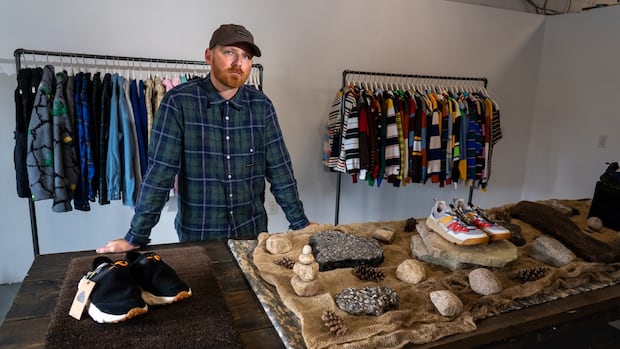Canadian online sellers are warning that their businesses are under threat as the United States plans to start charging duties on low-value parcels from Friday.
Until now, goods worth less than $800 have been allowed to enter the United States duty-free under what is known as the de minimis exemption. But in July, U.S. President Donald Trump signed an executive order that from Aug. 29 all parcels will need to pay “all applicable duties.”
That will impose an added cost and paperwork on Canadian online sellers who have previously shipped to the United States under the de minimis exemption.
“It’s a big deal,” said Dave Pelkey, owner of The Vintage Crate in Arnprior, Ont.
One of his online storefronts makes 60 per cent of its sales to customers in the U.S., but he worries that added burden of duties will hurt his business.
“It really will make products coming from Canada very unattractive from a price perspective,” he said.
‘Huge impact’
In recent years, the number of parcels entering the United States under the de minimis exemption has risen to over 1.3 billion annually. While many of these arrive from e-commerce giants in China, Canadian online sellers have also benefited from the exemption.
But with the elimination of de minimis, some Canadian Etsy and eBay sellers have added notes to their profiles saying they will stop selling to customers in the United States.
“The small Etsy retailers, the eBays … all these online retailers are going to have a huge impact with this. This is going to change trade much more than what the tariffs did,” said U.S. customs broker Damon Piatek.
Other business owners say the added costs are causing them to rethink their business models.
Cal Green, owner and creative director of Raised by Wolves in Ottawa, says he will be pivoting his streetwear label toward Canadian customers.
“I definitely can’t foot the bill for increased tariffs,” he said. “American customers are going to have to pay one way or another.”
Sales to the United States currently make up about 25 per cent of his business, Green said, though that is likely to change. “I’m just trying to focus on domestic sales right now,” he said.
Shipping companies have been scrambling to understand how the new regime will be implemented.
“It’s complicated because now everyone has to figure out how these duties are going to be collected,” said Juhee Cha, who works in communications for Canadian shipping company Chit Chats.
The U.S. Customs and Border Protection agency has only recently clarified that they will not collect the duties itself, and will instead only accept packages with the duty pre-paid, she said.
“It’s causing a lot of headaches, people scrambling, a lot of stress, uncertainty,” Cha told CBC. “How are they going to put these systems in place when they were just told a week ago?”
Paperwork will now need to include manufacturer information and a 10-digit HTS code that will determine what duties and tariffs will be charged, she said.
“I feel bad because there’s a big bunch of vintage or antique sellers and there is no ideal solution for them,” she said, explaining that older products may not have a clearly labelled country of manufacture or HTS code.
As postal companies scramble to implement duty collection systems, eBay has said it will stop allowing users to ship with Canada Post, citing “a significant risk that non-compliant shipments arriving to the US beyond August 29th will be returned to the sender.”
Canada Post, meanwhile, has said it is partnering with a private company to collect the duties.
“To meet the new U.S. requirements, we’re partnering with Zonos to collect duties before they enter our network and remit them directly to U.S. Customs and Border Protection,” Canada Post said in an email to small business customers on Aug. 22.
Meanwhile in Arnprior, antique dealer Pelkey has been scrambling this week to send orders using express shipping to ensure they clear U.S. customs before Friday. From then, he said he’s not sure how things will go, citing uncertainty over tariff and duty rates.
“It is still not clear what will be charged,” he said.







